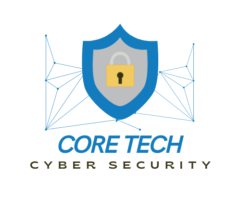In the ever-evolving field of cybersecurity, staying updated with the latest knowledge and best practices is crucial for professionals. Here’s why reading these security books is essential for anyone working in cybersecurity:
1. Stay Updated with Emerging Threats
- Overview: Cyber threats are constantly evolving, and understanding new attack vectors and defensive strategies is vital. Books like “The Web Application Hacker’s Handbook” and “Advanced Penetration Testing” provide in-depth insights into the latest threats and techniques used by attackers.
- Why It Matters: Keeping up with emerging threats ensures that you can anticipate and mitigate potential vulnerabilities in your systems.
2. Deepen Your Technical Expertise
- Overview: Advanced books such as “Security Engineering” and “Computer Security: Art and Science” offer detailed explanations of complex security concepts and practices. These resources help professionals deepen their technical knowledge and improve their problem-solving skills.
- Why It Matters: Enhanced technical expertise allows you to design more secure systems and effectively address sophisticated security challenges.
3. Improve Your Practical Skills
- Overview: Books like “Hacking Exposed” and “Practical Cryptography for Developers” offer hands-on techniques and real-world examples that help you apply theoretical knowledge to practical scenarios.
- Why It Matters: Practical skills are essential for performing effective security assessments, penetration tests, and incident responses.
4. Understand Historical and Theoretical Contexts
- Overview: “The Code Book” explores the history and science of cryptography, providing valuable context for understanding modern cryptographic techniques and their evolution.
- Why It Matters: Understanding the historical and theoretical foundations of cybersecurity concepts helps you appreciate the development of current practices and technologies.
5. Enhance Your Incident Response Capabilities
- Overview: “Incident Response & Computer Forensics” offers comprehensive guidance on handling and investigating security incidents, including advanced forensic techniques.
- Why It Matters: Effective incident response is critical for minimizing damage and recovering from security breaches. Knowledge of best practices in this area improves your ability to manage and resolve incidents efficiently.
6. Advance Your Career
- Overview: Reading advanced and comprehensive books demonstrates a commitment to professional development and a deep understanding of the field. Books like “Practical Cryptography for Developers” and “Advanced Penetration Testing” can set you apart in a competitive job market.
- Why It Matters: Continuous learning and specialization enhance your career prospects and open up opportunities for advanced roles and responsibilities.
7. Gain Insights from Industry Experts
- Overview: Many of these books are written by renowned experts and practitioners in the field, providing valuable insights and real-world experiences. For instance, “The Art of Invisibility” by Kevin Mitnick offers a unique perspective from a former hacker.
- Why It Matters: Learning from industry leaders and experienced professionals can provide you with practical knowledge and innovative approaches to cybersecurity challenges.
8. Build a Strong Knowledge Foundation
- Overview: Foundational books like “Cybersecurity for Beginners” and “Network Security Essentials” establish a solid base of knowledge that is crucial for more advanced studies and practices.
- Why It Matters: A strong foundation in basic concepts supports more effective learning and application of advanced techniques and strategies.
Conclusion
Reading these security books is not just about gaining knowledge—it’s about staying ahead in a dynamic and critical field. Whether you’re looking to enhance your technical skills, improve practical abilities, or advance your career, these resources provide valuable insights and expertise that are essential for any cybersecurity professional. Investing time in these readings will strengthen your understanding, boost your capabilities, and help you contribute more effectively to safeguarding information and systems.
Categories:
